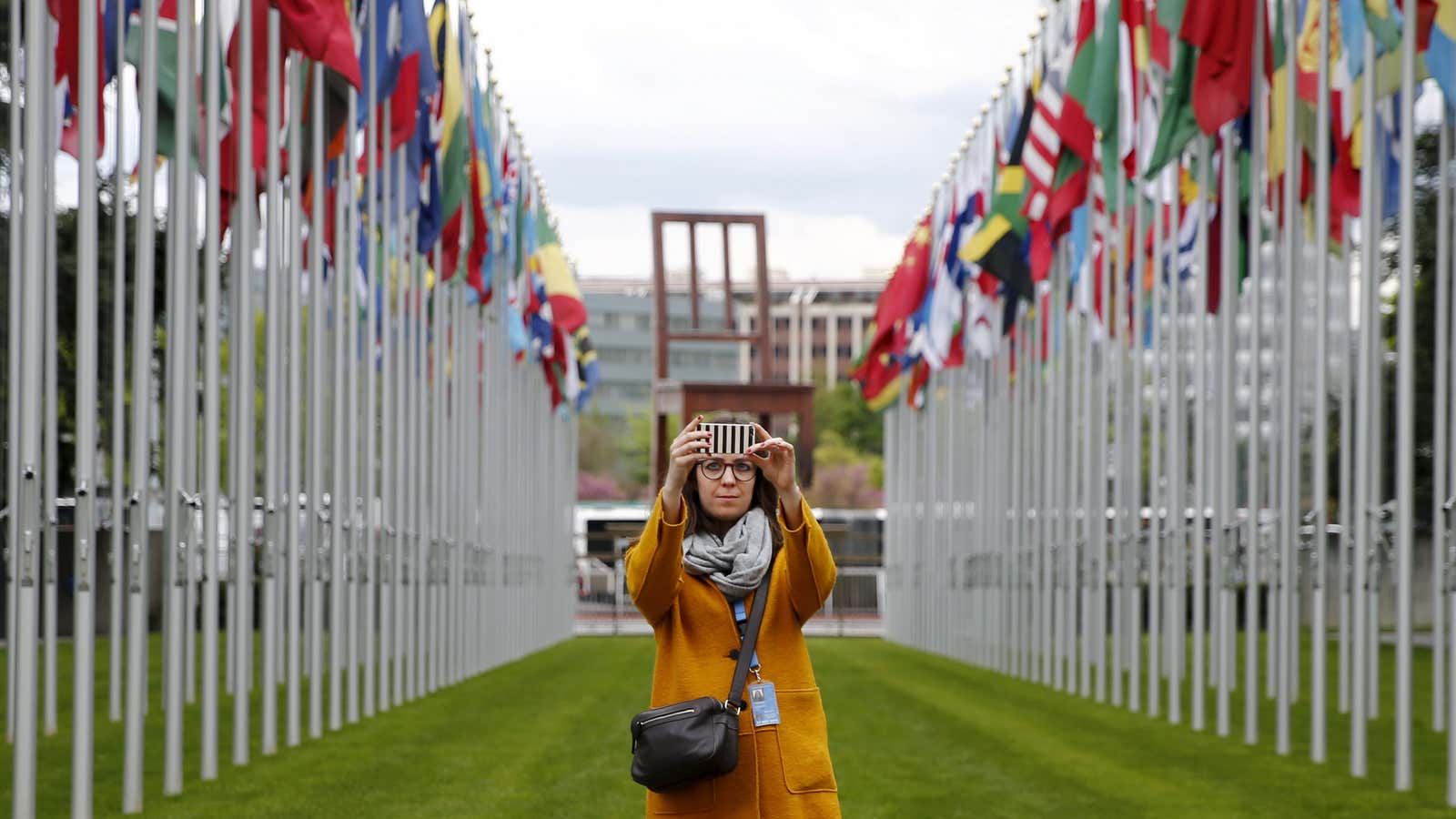Despite the country-first rhetoric driving political campaigns in the US and around the world, nationalistic feelings seem to be on the decline globally. That’s according to a new poll done for the BBC World Service, which has found that people are becoming more likely to identify as “global citizens,” especially in countries with emerging economies.
GlobeScan, which conducted the poll for the BBC, surveyed more than 20,000 people from 18 countries between December 2015 and April 2016. The public opinion research firm found that in the 18 countries surveyed between 2015 and 2016, an average of 51% of the population said they see themselves more as global citizens than citizens of the country they live in. (These averages weren’t weighted for population size, however, so the 51% figure in itself is largely meaningless.)
GlobeScan notes that “This is the first time since tracking began in 2001 that there is a global majority who leans this way”—though it also notes that the firm has expanded the list of countries it surveys this year, to 18, from 14 previously. For those 14 countries, the average number who said they see themselves first as global citizens is 49%.
The interviews were conducted in person or over the phone, and when asked if they saw themselves more as global citizens than citizens of the country, the survey-takers were given these options: strongly agree, somewhat agree, strongly disagree, or somewhat disagree, as well as “depends,” or “I don’t know.”
It’s worth noting that when the questions in the survey were asked a different way, the results lean more toward national identification. When given the choice of five identities (national citizenship, being a world citizen, local community, religious tradition, and race or culture), an average of 52% ranked national citizenship as their most important criteria for self-identity.
The inclination to identify first as global citizens appeared strong in countries with emerging economies: notably, Nigeria, China, Peru, and India, where more than 65% of the people surveyed agreed the statement about being a global citizenship first. For those four countries, that number is up between 13 and 20 percentage points from just a year ago.
GlobeScan reported the opposite trend, however, in wealthier countries. Since the financial crisis in 2009, GlobeScan has noted a decline in people who identify as global citizens in seven countries in the Organization for Economic Cooperation and Development (OECD): Canada, Chile, Mexico, Germany, Spain, the UK, and the US. Over the same period, it saw a rise in identification with global citizenship in seven non-OECD countries—Brazil, China, India, Indonesia, Kenya, Nigeria, and Russia. Before the financial crisis, the OECD countries actually reported higher levels of global citizenship than the non-OECD ones.
Notably, Germany saw a decline in global feelings: Just 30% of those polled identify first as global rather than German citizens, the lowest percentage that GlobeScan has recorded since 2001. That may have something to do with Europe’s ongoing migration crisis—GlobeScan asked the subjects their views on intermarriage, immigration, and specifically, the Syrian refugee crisis. Of the Germans surveyed, only 34% said they approve of marriage between people of different backgrounds, and a large percentage neither agreed nor disagreed, said it depends, or said they didn’t know. Still, a majority—54%—of Germans polled said they approve of the country’s acceptance of refugees fleeing the crisis in Syria.
Correction: An earlier version of this story misstated the basis for calculating the global percentages of respondents to the survey who said they consider themselves global citizens before national citizens.
